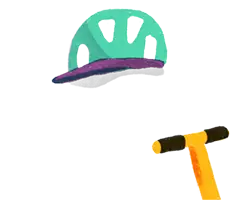Part 11Miscellaneous provisions
97Nuisance, trespass, and responsibility for damage
No action for nuisance may be brought in respect of the noise or vibration caused by aircraft or aircraft engines on an aerodrome, if the noise or vibration is of a kind specified in any rules made under section 28 or section 29 or section 30, so long as the provisions of the rules are duly complied with.
No action shall lie in respect of trespass, or in respect of nuisance, by reason only of the flight of aircraft over any property at a height above the ground which having regard to wind, weather, and all the circumstances of the case is reasonable, so long as the provisions of this Act and of any rules made under this Act are duly complied with.
Where material damage or loss is caused to property on land or water by an aircraft in flight, taking off, landing, or alighting, or by any person or article in or falling from any such aircraft, damages shall be recoverable from the owner of the aircraft, without proof of negligence or intention or other cause of action, as if the damage or loss was caused by his or her fault, except where the damage or loss was caused by or contributed to by the fault of the person by whom the same was suffered.
Where damage or loss is caused in the manner described in subsection (3) and in circumstances in which—
- damages are recoverable from the owner of the aircraft in respect of the damage or loss by virtue only of the provisions of subsection (3); and
- some person other than the owner is liable to pay damages in respect of the damage or loss,—
Where damage or loss is contributed to by the fault of the person by whom the same was suffered, the provisions of the Contributory Negligence Act 1947 as to apportionment shall apply.
Damages shall not be recoverable under subsection (4) from the owner of an aircraft in respect of damage or loss caused by a person descending from the aircraft by parachute. Damages shall be recoverable from the person descending and the provisions of subsection (4) shall, with the necessary modifications, apply as if the person descending were the owner of the aircraft. This subsection shall not apply in respect of damage or loss caused by a person descending from an aircraft by parachute where the descent is required to avoid injury or death.
Where an aircraft has been hired out to any other person by the owner thereof, for a period greater than 28 days and no pilot, commander, navigator, or operative member of the crew of the aircraft is in the employment of the owner, this section shall apply as though every reference to the owner were a reference to the person to whom the aircraft has been so hired out.
For the purposes of this section, the term fault means negligence, breach of statutory duty, or other act or omission which gives rise to a liability in tort or would, apart from the Contributory Negligence Act 1947, give rise to the defence of contributory negligence.
Compare
- 1964 No 68 s 23


